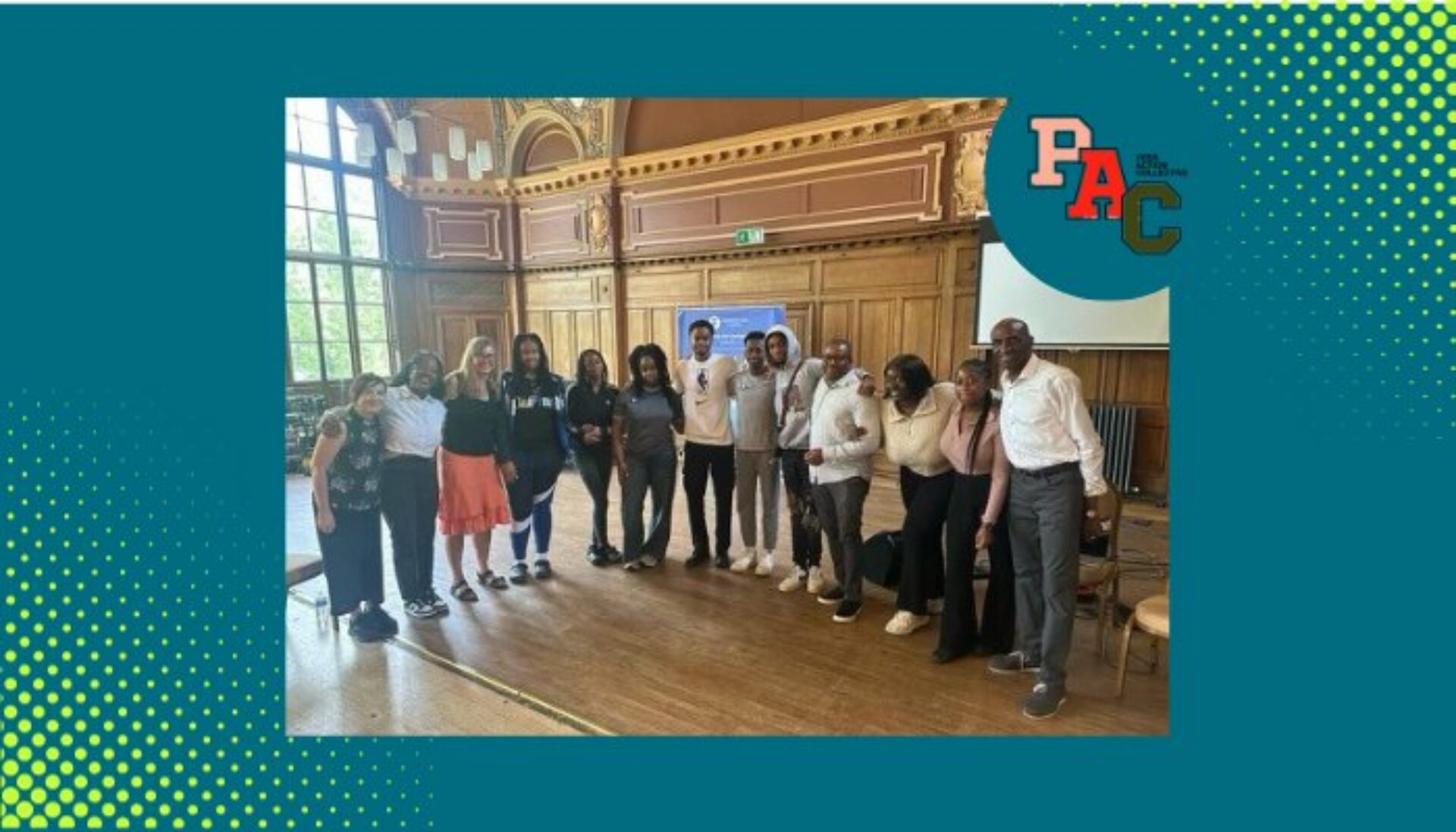Project overview
The Peer Action Collective (PAC) is a £12.7 million programme, which aims to give young people the chance to make their communities safer, fairer places to live. It is funded by the Youth Endowment Fund, the #iwill Fund (a joint investment between The National Lottery Community Fund and the Department for Culture, Media and Sport) and the Co-op Group.
PAC is a ground-breaking network of peer researchers; social action leads and changemakers. The network is driven by young people with lived experience of violence finding out what needs to happen to make their area a better place to live, and turning these insights into action. This will include work such as influencing school practices, improving local mental health services, co-producing violence reduction strategies or supporting more young people into employment.
McPin and the Peace Alliance will work together as the Delivery Partners in London (2023-2025). Our work aims to further grow youth lived experience leadership, undertake research driven by experiential knowledge, and carry out social action that results in on-the-ground change in Haringey. We are excited to work together and learn from each organisation’s different expertise.
Each PAC delivery partner has a topic area; our partnership is working on education. We know that school is an important part of young people’s lives, and that engagement with education can have an impact on their experiences of youth violence. We will be led by our team of young peer researchers and social action leads over what questions need answering about education and youth violence, and we will support them to develop social action projects that addresses the issues identified.
What is peer research?
Peer research is where people with lived experience of the issues being studied take part in directing and conducting the research. In PAC this mean the research is designed and delivered by young people with lived experience of youth violence.
What is social action?
In PAC social action will be activities that young people design and deliver to address youth violence in their local community. These will be youth designed and informed by the finding of our peer research work. It could include things like influencing policymakers, events for young people, creating safe spaces or developing an educational programme.
Project details
Haringey has 59,800 children and young people aged 0-19 years recorded in the 2021 census. It has one of the highest rates of Cautions and Court sentences given to children (per 1,000) of general 10-17 population, from 1st of April 2021 to 31st March 2022.
According to analysis of the Youth Justice Application Framework (YJAF) statistics, the rate per 1,000 is 7.2 – the third highest in England and Wales. Youth violence is such a concern the Council has a dedicated ‘young people at risk’ strategy (Haringey council 2018) seeking to build a safer borough whilst acknowledging problem of serious youth violence. A report from the London Mayor’s office shows some progress being made in Haringey, with a fall in weapon-enabled robbery 2019 to 2020 (MOPAC, Sept 2022).
A range of issues contribute to youth violence in London, including poverty, unemployment, poor housing conditions, and lack of educational and employment opportunities (London Assembly, 2018). Gang activity is also a significant contributor (Metropolitan Police, 2021).
It is critical we understand how education can address youth violence, but it must be informed and driven by young people.
We asked some of the young people peer researchers in our team why they think this work is important for us to undertake.
They shared:
“I think that addressing youth violence is important because it doesn’t exist and happen in a vacuum. Considering the implications that young people do not have many options or access to community services and resources that are beneficial to them, young children – particularly those racialised communities being ‘overpoliced’ and pushed out of schools and the difficulty in finding jobs that are meaningful and pay a reasonable wage – it is important to have young people voice the ways in which their conditions can be improved.
As this is not a new public conversation more needs to be done by those in power to address it rather than criminalising young people for existing in a reality that does not equally benefit everyone.”
As the local Delivery Partners in London, McPin and the Peace Alliance, will work to support young people to take the lead in designing and delivering peer research and social action.
Our partnership will initially run for 30 months from July 2023. Staff working closely on the project have connections in the local community in Haringey, working with young people, and experiences of being affected by youth violence.
We will work with a group of 12-14 young people from Haringey with lived experience of youth violence who will form a core team of paid peer researchers and social action leads. The group is tasked with connecting with more young people, including around 80 changemakers and 200 social action participants.
The aim is to support change, so together young people will co-produce and deliver a social action plan for their local community built on lived experience and research.
Find out more here: Peer Action Collective teams to build a more inclusive education system to help prevent violence
You can email the project manager at McPin on: [email protected]
Related projects
Work with us
We are always excited to hear from others who want to collaborate on mental health research. From delivering peer research to helping you with public involvement strategies and providing training, get in touch to chat.




